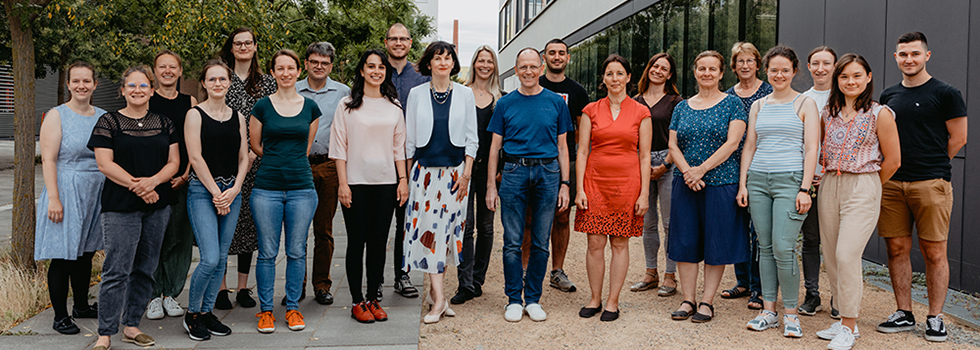Systems Biology of Information Processing and Decision Making
At the Magdeburg Centre of Systems Biology (MaCS), we move to the next level of molecular cell biology by deciphering the regulatory complexity of living cells.
Information processing is an essential function of living organisms
Cells are the building blocks of all living organisms. The behavior and the proper function of individual cells is the result of a continuous process of signaling, information processing and decision making. These communication processes are mediated by networks of interacting biomolecules. These intricate communication networks determine whether an individual cell expresses specific biomolecules, interacts with other cells, divides, differentiates, or even dies. The proper function of these communication networks is critical for optimal functioning of the organisms. In fact, the programmed cell death, which eliminates damaged cells, is one of the unique secrets of our health. Almost every non-infectious disease but also inappropriate, excessive or insufficient reactions to infections are caused by or result in the dysregulation of cellular information processing.
The cell is a complex system and must be investigated accordingly
Each cell contains thousands of different types of biomolecules each of which are present in multiple copies. These biomolecules form regulatory networks with the characteristics of complex systems. In terms of behavior and emerging properties, a complex system is essentially more than the sum of its parts. This applies to social, economic, and political networks as well as to the biomolecular network that controls the behavior of cells in particular and the organ and organism as a whole. A hallmark of complex systems is that their behavior is dynamic and can neither be predicted nor understood just by arguments of linear causality or by intuitive reasoning.
We go beyond the classical approaches of molecular biology and aim at understanding cells as complex systems. This requires new conceptional, experimental, and computational approaches that are developed and pursued at the Magdeburg Centre of Systems Biology.

The group of Translational Inflammation Research (Prof. Dr. habil. rer. nat. Inna Lavrik ) works on understanding life and death decisions in the cell, focusing on cell death networks in cancer cells and trying to understand when and how a cell decides to die. This work lays the basis for the development of novel anti-cancer therapies.

The group of Prof. Schaper (Systems biology) aims to understand how cellular communication is shaped by the crosstalk of different biomolecular networks and by cell-to-cell heterogeneity. Incorrect or incomplete intra- and intercellular communication is at the root of many cell-based diseases such as cancer and inflammatory diseases. Understanding biological communication channels is thus of great diagnostic as well as therapeutic importance.

The group of Prof. Marwan (Regulation biology) makes a systems-oriented approach to the circuitry of regulatory control of cell fate decision and differentiation.







